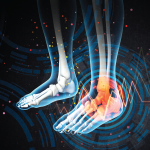NEW YORK (Reuters Health)—Pfizer’s expensive arthritis drug tofacitinib has been shown to produce a remission in nearly 1 in 5 patients with moderate to severe ulcerative colitis, but long-term remission persists in fewer than half of those cases. In a series of studies published in the May 4 New England Journal of Medicine, researchers reported…
Search results for: hospital
Institute for Clinical Economic Review Final Report on RA Treatments
On April 7, 2017, the Institute for Clinical and Economic Review (ICER) published its final report, titled, Targeted Immune Modulators for Rheumatoid Arthritis: Effectiveness & Value.1 The stated objective of the report was to assess the comparative clinical effectiveness of the targeted immune modulators (TIMs) used to treat patients with moderate to severe active rheumatoid…

FDA to Review Immediate-Release Oxycodone; Plus NICE Recommends Secukinumab
A new formulation of oxycodone in 10 and 15 mg doses is being reviewed by the FDA for treating pain…

Baricitinib Approval Stalls; Plus No REMS for Erythropoiesis-Stimulating Agents
The FDA has declined to approve baricitinib to treat rheumatoid arthritis, citing the need for more data on dosing and safety…
Tofacitinib Treatment May Improve Nail Psoriasis
NEW YORK (Reuters Health)—The oral Janus kinase (JAK) inhibitor tofacitinib appears to improve moderate to severe nail psoriasis, according to a new study. “Nails are hard to treat in psoriasis and we need better treatments,” says Dr. Luis Garza, a dermatologist at Johns Hopkins School of Medicine in Baltimore, who was not involved in the research….

NKTR-181 Promising for Chronic Low Back Pain
NKTR-181, a mu-opioid agonist analgesic, has proved safe and effective for treating chronic low back pain vs. placebo in a recent clinical trial…

A Moving Target: Cardiovascular Risk & Rheumatic Disease
For patients with rheumatic disease, general treatment guidelines for managing cardiovascular risk are suboptimal, says Katherine Liao, MD. A patient’s level of disease activity and inflammation affect their risk…

Studies Highlight Risk of Damage from Lupus Treatments
WASHINGTON, D.C.—Conference goers who braved the final day of the 2016 ACR/ARHP Annual Meeting were awarded for their stamina by learning about issues relating to the damage caused by systemic lupus erythematosus (SLE) during the session Systemic Lupus Erythematosus—Clinical Aspects and Treatment V: Damage and Morbidity. Minimizing Damage: Early Use of GC-Sparing Strategies Jayne Little,…

Effectiveness of Novel Therapies for Cutaneous SLE Explored
WASHINGTON, D.C.—A new, humanized anti-BDCA2 monoclonal antibody can trigger inhibition of the production of interferon, cytokines and chemokines derived from plasmacytoid dendritic cells in patients with cutaneous systemic lupus erythematosus (SLE), according to research presented at the 2016 ACR/ARHP Annual Meeting. The findings were discussed during a session on SLE treatment, drug adherence and the…

Drug Reduction Strategies, Disease Control for Patients with RA in Remission
WASHINGTON, D.C.—Clinical aspects of managing patients with rheumatoid arthritis (RA) in remission were discussed by a panel of experts at the 2016 ACR/ARHP Annual Meeting during the session titled Rheumatoid Arthritis—Clinical Aspects IV: Managing Patients in Remission. Among the issues raised were strategies to taper or discontinue biologic therapies, as well as clinical predictors of…
- « Previous Page
- 1
- …
- 192
- 193
- 194
- 195
- 196
- …
- 331
- Next Page »